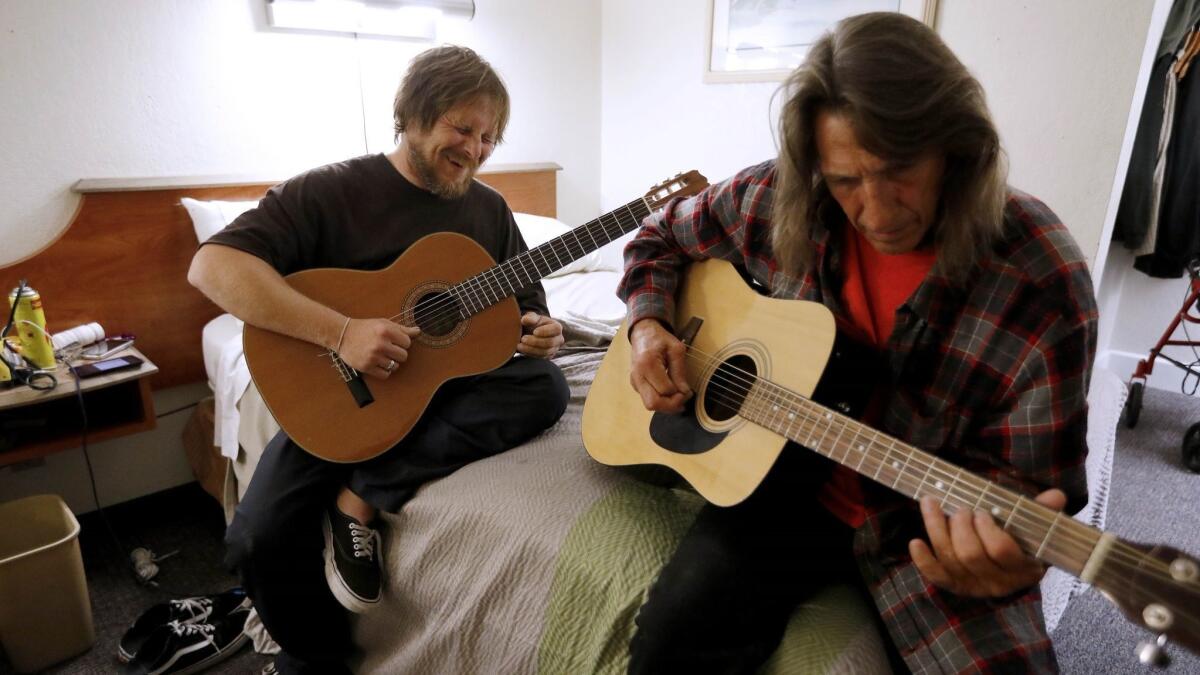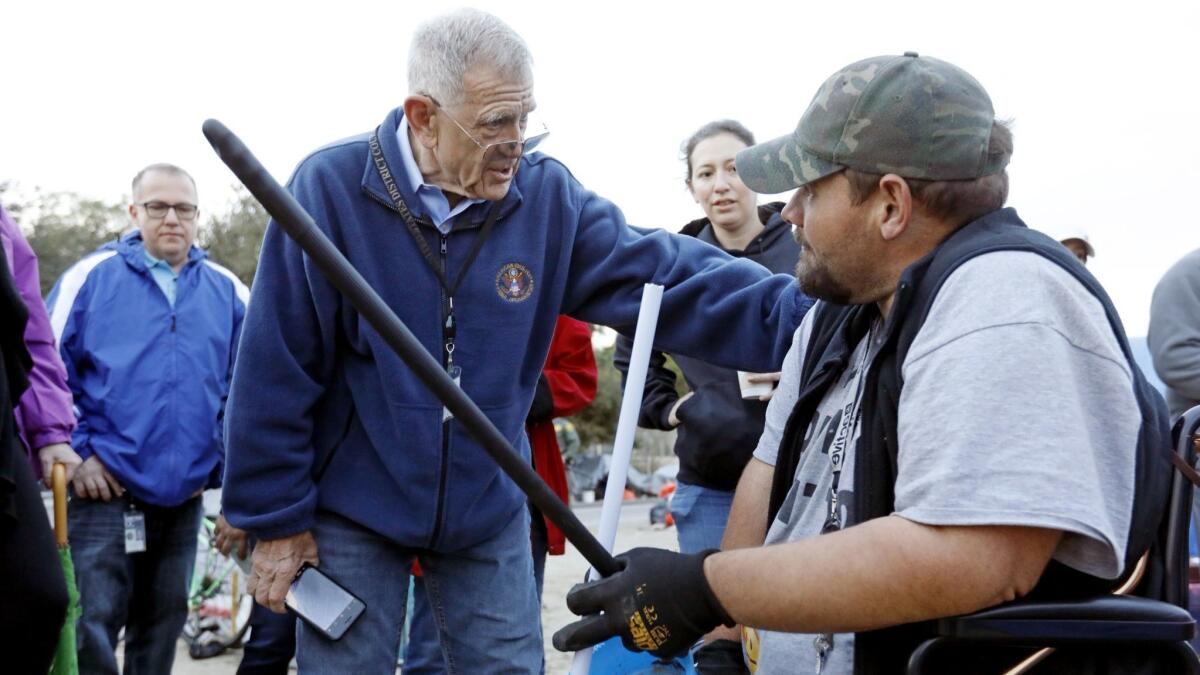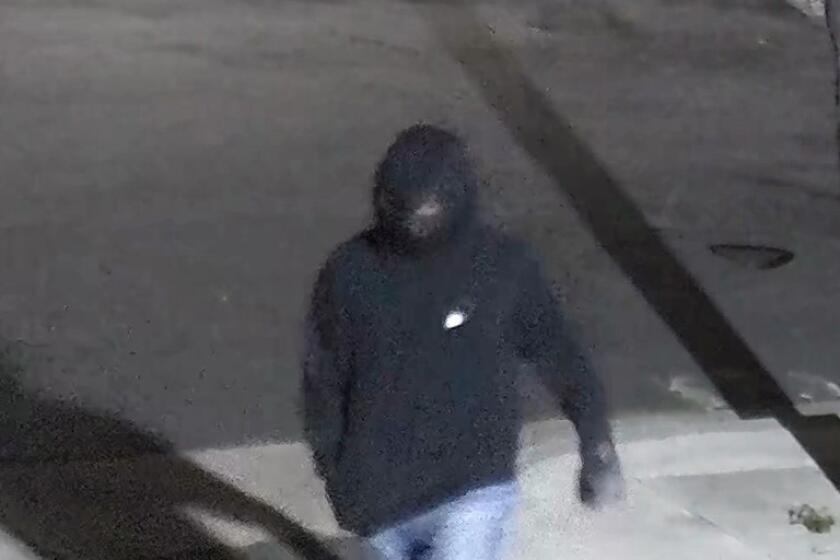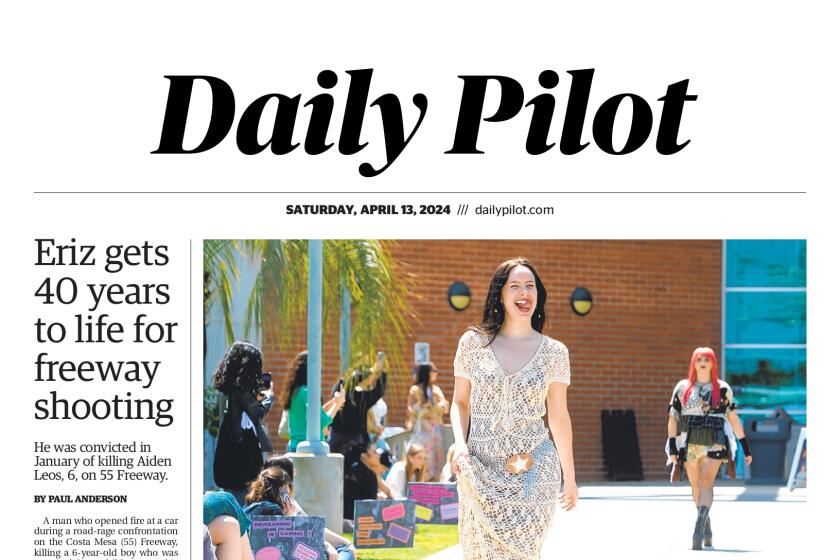Hearing Saturday will weigh what’s next for homeless moved into motels from Santa Ana River trail

The future of hundreds of homeless people recently removed from the Santa Ana River trail and temporarily housed in motels will be the focus of a federal judge’s hearing Saturday in Santa Ana.
More than 700 homeless people were moved last month to various motels in Orange County, including some in Costa Mesa, as officials pushed to clear a massive encampment along the river.
However, the 30-day motel stays will end in the next week, according to county officials, and homeless advocates contend the county doesn’t have enough shelter space to accommodate everyone in need.
In light of those concerns, U.S. District Judge David Carter decided Wednesday to move up a status conference among attorneys, county officials and city representatives to determine whether “appropriate resources are being provided” and to hammer out the next steps. The hearing, originally scheduled for early April, will instead be held at 9 a.m. Saturday at the Santa Ana City Council chamber, 22 Civic Center Plaza.
Carter invited mayors and city managers from all of Orange County’s 34 cities to weigh in at the hearing.
“Without appropriate resources, unsheltered individuals returning to the streets, sidewalks, plazas and parks in the cities of Orange County could be at risk, simply because of their homeless status, of being criminalized under anti-camping and anti-loitering laws,” Carter wrote.
Newport Beach City Manager Dave Kiff said Thursday that he plans to attend.
Costa Mesa City Manager Tom Hatch and Mayor Sandy Genis will attend as well, according to city spokesman Tony Dodero.
Huntington Beach is sending a city staff member, and Laguna Beach plans to send its city attorney and at least one City Council member.
The city of Fountain Valley did not immediately respond to a request for comment.
Attorney Brooke Weitzman, who represents seven homeless people and their advocates who filed a civil-rights lawsuit against the county in January over the clearing of the river encampment, argued in a court filing that the only shelter options available are the same ones that existed before. Those include Bridges at Kraemer Place in Anaheim, the Courtyard in Santa Ana and beds at unspecified private shelters.
“This leaves well more than 500 individuals relocated from the riverbed without shelter and competing with the additional 2,300 unhoused persons in Orange County for the limited resources that exist,” Weitzman wrote.

In the past month, county staff members have conducted clinical assessments on most people staying in the motels in an effort to match them with appropriate housing and resources, officials said.
Officials assert they have enough beds for everyone who completed an assessment.
“These beds include shelter, recuperative care, Full Service Partnership mental health treatment and substance-use disorder treatment beds,” county attorneys wrote in a court filing. “In the event more beds are needed, the Board of Supervisors has authorized the county executive officer to contract for additional beds.”
The plan to temporarily move homeless people into motels was part of a package agreed to by county officials and the attorneys who filed the civil-rights lawsuit. The suit also sought to prevent the cities of Costa Mesa, Anaheim and Orange from enforcing laws against camping, trespassing and loitering.
During a series of unorthodox hearings last month, Carter pushed officials to come up with a long-term housing solution for the county’s homeless population. He said he didn’t want homeless people who left the river trail to be cited by cities, put in jail for a day and then sent back to the streets, only to be cited again.
“I’m tired of the paperwork and the ‘We can’t get it done’ nonsense,” Carter said at the time. “I’m looking for solutions now.”
Twitter: @HannahFryTCN
All the latest on Orange County from Orange County.
Get our free TimesOC newsletter.
You may occasionally receive promotional content from the Daily Pilot.




